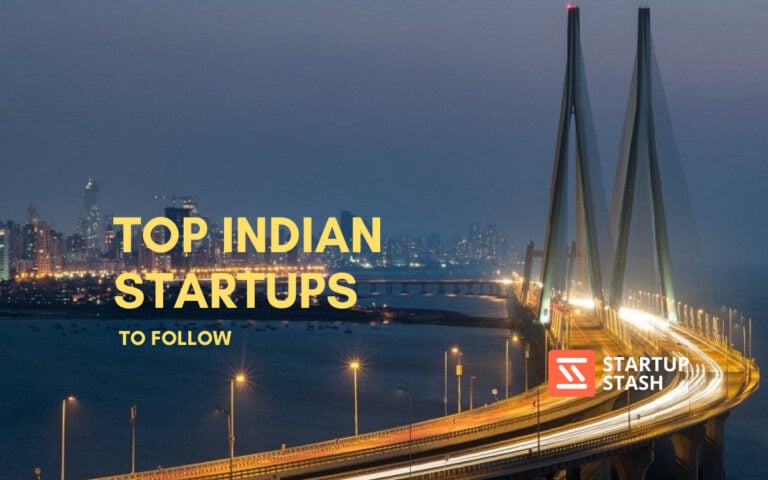Malaysia is emerging as a powerhouse in the ASEAN startup scene, with significant advancements and supportive initiatives boosting the growth of new ventures. The Malaysia Startup Ecosystem Roadmap 2021-2030 aims to create 5,000 startups, including five unicorns, by 2025. The government's commitment to fostering innovation is evident through various initiatives, such as the Madani Framework and the recent budget (2024) that includes grants, tax exemptions, and low-interest loans to support startups.
As part of its effort to create a conducive environment for startups, Malaysia has introduced several initiatives, such as the MYStartup platform, which streamlines the registration and compliance processes for new businesses. The Malaysia Co-Investment Fund (MyCIF) has also been allocated RM 500 million ($106 million USD) to co-invest with private investors in equity crowdfunding and peer-to-peer financing platforms for top startups.
With a strategic location, a diverse market, and a skilled workforce, Malaysia is poised to become a regional hub for tech innovation. Let's explore the top 15 Malaysian startups to watch in 2024 and understand how they are shaping the future of the nation's entrepreneurial ecosystem.
1. Kommu
Year Founded: 2020
HQ: Petaling Jaya, Malaysia
Size: 1-10
Founders: Kean Wong and Kok Ting

Kommu is one of the Malaysian startups that was founded with a vision to improve the driving experience. Kommu focuses on developing advanced driver assistance systems (ADAS) that can be retrofitted into existing vehicles, particularly targeting low-end models such as the Perodua Axia and Proton cars. By leveraging AI and IoT technologies, Kommu aims to make autonomous driving more accessible and affordable for the average consumer, addressing common issues like traffic congestion and productivity loss during long commutes.
Kommu's innovative solutions include features that improve vehicle safety, energy efficiency, and parking management while reducing infrastructure costs. It focuses on providing cost-effective and flexible solutions and continues to work closely with local car manufacturers to bring these advanced features to market. Kommu has secured over 20K RM ($4K) in its pre-seed round in 2022. It plans to develop next-generation hardware featuring peripheral cameras to improve the system's field of vision and capture sudden cut-ins from motorcycles and cars more efficiently.
2. Paywatch
Year Founded: 2020
HQ: Kuala Lumpur
Size: 11-50
Founders: Richard Kim and Alex Kim

Paywatch is the only provider of earned pay access services endorsed by big banks and acknowledged by regulators, central banks, and the UN for its dedication to ESG and financial access. It acts as a link to assist workers in opening bank accounts, obtaining credit properly, and achieving financial stability by collaborating with leading banks and employers in each of its markets.
Employees have instant access to a portion of their "accumulated salary" when earned and before their pay period ends. According to Paywatch, this reduces their reliance on loans. The company secured RM 140 million ($29.722 million) from two funding rounds in 2024. With the new funds, Paywatch plans to enhance its embedded finance offerings and innovate further in the financial inclusion space. This involves expanding its debt-free EWA solutions and financial management systems.
3. MR.BUR
Year Founded: 2021
HQ: Penang, Malaysia
Size: 11-50
Founders: Sean Yau

MR.BUR is committed to offering the best dental burs by working with professionals with over 50 years of expertise in the dental bur business. Its dedication to technological innovation and invention guarantees precision, which improves the patient experience. MR.BUR uses advanced manufacturing techniques and high-quality materials to produce exceptional performance and longevity burs.
Malaysian startups like MR. BUR has significantly impacted the Southeast Asian market, including Indonesia, Vietnam, Singapore, and Thailand. Its ability to cater to a broad market with consistent quality and performance has solidified its reputation in the dental industry. Since its inception, MR. BUR has secured approximately $6.8 million in funding through several rounds, the most recent being in September 2022. This funding will be used to expand its operations and continue developing advanced dental technologies.
4. Durioo+
Year Founded: 2021
HQ: Cyberjaya, Malaysia
Size: 51-200
Founders: Sinan Ismail

Durioo+ is a streaming platform for Muslim kids founded by Sinan Ismail. Sinan previously formed Digital Durian, the animation studio behind the hugely popular series Didi and Friends, to give kids a secure streaming environment to watch Muslim content. Its featured works emphasize virtues, excellent morals, and Islamic teachings using enjoyable and engaging narratives.
Since its founding, Durioo+ has created 20 original programs, ranging from live-action edutainment shows to animated cartoons. Additionally, it has licensed over 1,500 episodes of television programs, including Upin, Ipin, and Baby Shark.
Along with gaining over 22,000 paying subscribers, the site has also signed 27 collaborations with SMEs, government agencies, and non-governmental organizations. Durioo+ secured RM 12.5 million ($2.65 million) in a seed round in 2023 and wants to increase its global viewership over the next few years.
5. Borong
Year Founded: 2017
HQ: Kuala Lumpur
Size: 51-200
Founders: Aizat Rahim, Lennise Ng

Borong, initially known as Dropee, is a Malaysian B2B e-commerce platform that streamlines the supply chain process by connecting wholesalers, distributors, and retailers. Malaysian startups like Borong aim to modernize and digitize the traditional supply chain, making it more efficient and transparent.
Borong offers a comprehensive solution for inventory management, order processing, and payments, providing businesses with real-time data and analytics to make informed decisions. Borong's services are particularly beneficial for small and medium-sized enterprises (SMEs) that often need help with supply chain inefficiencies. By leveraging technology, Borong helps these businesses reduce costs, improve operational efficiency, and expand their market reach.
Borong has raised significant funding to support its growth and development. In 2021, they secured $1.3 million in a pre-Series A funding round led by Vynn Capital, with participation from investors such as Brama One Ventures and Hustle Fund. With their recent funding in 2023, they received $10 million. Borong will use this funding to improve its platform capabilities, expand its team, and accelerate its market expansion across Southeast Asia.
6. Wahine Capital
Year Founded: 2020
HQ: Kuala Lumpur
Size: 1-10
Founders: Rejina Rahim

Wahine Capital is a Malaysian startup focused on financially empowering women by offering a comprehensive financial platform. It aims to address the financial literacy gap among women by providing accessible financial products and personalized advice. Wahine Capital also connects users with a network of women experts in various fields, including finance, business, and emotional well-being, to provide holistic support.
Rejina Rahim, with over 25 years of experience in the financial industry, established Wahine Capital to create a space where women can gain financial independence and confidence. She was motivated by her personal experiences and the realization that many professional women lacked adequate financial knowledge and independence.
Wahine Capital has been focused on building its platform and expanding its network of experts to include professionals from diverse backgrounds. It secured an undisclosed sum of money from two investors, which will be used to improve the company's platform and expand its reach.
7. Carching
Year Founded: 2021
HQ: Kuala Lumpur
Size: 1-10
Founders: Jeshua Choong

Carching is among the few Malaysian startups that facilitate peer-to-peer car rentals. It allows car owners to rent out their vehicles to others when they're not using them, allowing owners to earn extra income. Renters benefit from a more affordable and flexible alternative to traditional car rental services. Carching helps facilitate transactions securely between owners and renters, making it easier to access a vehicle when needed without the overhead costs of owning a car full-time.
Carching secured $180K from three funding rounds, the latest of which was held on December 1, 2023. With this funding, Carching plans to expand its user base and improve its platform to provide a better customer experience.
8. Naluri
Year Founded: 2017
HQ: Kuala Lumpur
Size: 201-500
Founders: Azran Osman Rani

Naluri is an evidence-based digital health system that assists organizations in predicting, preventing, and managing the most common mental and cardiometabolic illnesses, such as anxiety, chronic stress, depression, cancer, diabetes, and heart disease. In addition to assisting businesses in cutting unnecessary medical expenses, Naluri collaborates with healthcare practitioners to provide continuity of care outside the clinical setting.
Malaysian startups like Naluri offer individualized, coordinated, interdisciplinary professional coaching that delivers clinically meaningful health outcomes. It does this by fusing behavior science and psychology to assist members in forming and maintaining healthy lifestyle habits.
Naluri secured $14.8 million in funding in 2023. It will help the company launch its service in Thailand and the Philippines, as well as grow its operations in Indonesia and Singapore. Naluri will use the money to expand the business's data science and technology skills to improve its products and predictive algorithms.
9. Pandai
Year Founded: 2019
HQ: Jalan Kerinchi, Kuala Lumpur
Size: 51-200
Founders: Khairul, Akmal, and Suhaimi

Pandai is a Malaysian startup offering an innovative education technology platform dedicated to providing comprehensive online learning resources for students. It offers various educational materials, including interactive lessons, practice questions, and study aids designed to support students' academic pursuits. Since January 2020, Pandai has assisted 901,321 Malaysian students in practicing and finishing 566,682,281 questions.
Pandai addresses students' needs by providing personalized learning experiences. It aims to improve learning experiences through accessible and engaging content catering to various educational levels and subjects. In 2024, it secured over $2 million in funding from two rounds and eight investors.
10. FoodMarket Hub
Year Founded: 2017
HQ: Petaling Jaya
Size: 51-100
Founders: Shayna Teh and Anthony See

Food Market Hub is among the Malaysian startups in the F&B industry. It is a cloud-based platform designed to streamline and automate the back-end operations of food and beverage businesses. Food Market Hub helps F&B businesses minimize wastage and manage food costs more efficiently through an automated purchasing and inventory-tracking process. Automated purchasing allows restaurants to easily order from their suppliers and sync data from point-of-sale systems, inventory, and accounting systems for better procurement decisions.
In 2021, Food Market Hub raised $8.5 million in an extended Series A+ funding round, bringing their total Series A funding to $13 million. The round was led by AC Ventures Malaysia, backed by Malaysia's Penjana Kapital fund. Food Market Hub wants to increase its presence in Southeast Asia by focusing on markets like Indonesia, Singapore, and Thailand. The funding will help establish a stronger foothold in these regions and explore new market opportunities.
11. Torum
Year Founded: 2018
HQ: Bangsar South, Wilayah Persekutuan Kuala Lumpur
Size: 51-200
Founders: Ah Go, Alwin Chang, and Jayson Tan

Torum is a comprehensive SocialFi ecosystem that merges social media with NFT, DeFi, and Metaverse elements. Malaysian startups like Torum connect cryptocurrency users globally. It provides services that range from a social media platform tailored for crypto enthusiasts to an NFT marketplace for digital artists. Torum also offers a yield farming platform for DeFi participants and Avatar NFTs for Metaverse enthusiasts. This multi-faceted approach aims to simplify the onboarding experience for cryptocurrency users and improve the overall user experience within the crypto space.
Recently, Torum secured a provisional license from the Securities Commission Malaysia to operate as a Digital Asset Exchange (DAX), positioning it as the sixth regulated DAX in the country. This license also allows Torum to act as a Digital Broker. It secured $2.1 million over three rounds in 2021. With recent funding, Torum plans to expand its operations by improving its platform's features and capabilities.
12. MyMy
Year Founded: 2018
HQ: Kuala Lumpur
Size: 11-50
Founders: Kishore Samuel, Allen Goodwin, and Joe McGuire

MyMy is one of the Malaysian startups focused on fintech. It aims to become the country's first Sharia-compliant neobank and create secure, user-friendly financial services tailored to Malaysians' needs. One of their key products includes a prepaid card that mitigates fraud risks associated with traditional card numbers. MyMy implements biometric features for online transactions to bolster security further.
In terms of funding, MyMy secured an RM10 million ($2.123 million) capital influx from Koperasi Tentera in 2020. In April 2021, it also got conditional approval by Bank Negara Malaysia for an e-money license, allowing it to provide digital accounts with a maximum value of RM 1,500. MyMy closed a second seed round in 2024 with a total of $5.1 million.
With the new funds, MyMy aims to improve its product offerings and continue its innovation in the fintech space. It is working on integrating facial recognition capabilities and expanding its numberless card's global acceptance.
13. HelloWorld Robotics
Year Founded: 2019
HQ: Kuala Lumpur
Size: 1-10
Founders: Kennedy Wai

HelloWorld Robotics focuses on developing autonomous delivery robots. It started in China and later moved its operations to Cyberjaya, Malaysia, for pilot testing. HelloWorld Robotics aims to transform last-mile delivery with semi-autonomous robots equipped with LiDAR sensors for navigation and obstacle avoidance. These robots are currently being tested in controlled environments like gated communities and university campuses.
Helloworld Robotics secured an undisclosed sum from two investors in 2021. It plans to use its funding to expand its fleet of delivery robots and improve the technology further. Helloworld Robotics aims to extend the robots' delivery range to 5 kilometers and eventually develop higher-speed autonomous robots for longer distances.
14. Scentses + Co
Year Founded: 2020
HQ: Kuala Lumpur
Size: 11-50
Founders: Sabreena Yeong and Sadira Yeong

Scentses + Co is a Malaysian startup offering a unique designer perfume subscription service. Founded in June 2020 by sisters Sadira, Sabreena, and Sandra, Scentses + Co allows subscribers to discover various scents each month. Subscribers can choose between two plans: the LITE plan, which costs RM49.90 per month and offers access to over 170 designer perfumes, and the LUXE plan, which costs RM59.90 per month and includes more premium brands.
Scentses + Co received a significant boost in its early stages through a strategic partnership with Malayan United Industries Bhd and its venture arm, Pan Malaysia Ventures Sdn Bhd. This collaboration aims to deepen the company's marketing capabilities and expand its market presence. The funding from MUI is primarily directed towards improving its marketing strategies. Scentses + Co received the funds through a silent funding round in 2023.
Its business model introduces subscribers to new scents and aims to reduce waste by offering smaller 8 ml bottles. These are packaged in sleek, reusable mini atomizers, and Scentses + Co plans to introduce a program for returning empty bottles in exchange for rewards.
15. Bereev
Year Founded: 2018
HQ: Kuala Lumpur
Size: 2-10
Founders: Izumi

Bereev is a Malaysian startup focused on legacy planning. It is designed to help individuals prepare for their eventual demise in an approachable manner. It allows users to organize important documents, such as wills and insurance policies, and even leave behind personal messages for their loved ones. This service aims to ease the burden on families during difficult times by ensuring that all necessary information and wishes are clearly documented and accessible.
Bereev offers a freemium model, where basic features are available for free, while premium features, including greater storage capacity and better planning tools, are accessible through a subscription plan. Bereev has received support from various programs, such as the Khazanah Nasional Entrepreneurship Outreach Programme and the WatchTower and Friends Accelerator programme. It has received $34.5K to improve its services and platform capabilities.
FAQs
What are the strongest industries in Malaysia?
The strongest industries in Malaysia in 2024 include digital banking and the agritech sector, which focuses on enhancing food security through biotechnology. Additionally, there is significant growth in the social enterprise sector, with plans to increase the number of registered social enterprises significantly by 2025.
What is the average investment in the startup industry in Malaysia?
The average investment in the Malaysian startup industry is influenced by various government and private initiatives. The Malaysian government allotted a budget of $317 million in 2023, and this amount was subsequently boosted to $700 million in 2024 in an effort to foster and develop the nation's startup ecosystem. The government is creating the MYStartup portal as a major step toward streamlining support services. This portal will act as the Single Window for startups in Malaysia, facilitating communication and creating a comprehensive one-stop shop for the ecosystem.
How many startups are there in Malaysia?
As of 2024, there are over 3,000 Malaysian startups. This number is supported by various initiatives and resources provided by government agencies and private organizations to foster startup growth and innovation.
How fast is the startup industry growing in Malaysia?
The startup industry in Malaysia is experiencing rapid growth, supported by increased digitalization and government initiatives under the Twelfth Malaysia Plan (12MP). This plan focuses heavily on digitalization for SMEs and Malaysian startups, with growth rates expected to mirror those of other rapidly developing countries in the region.


